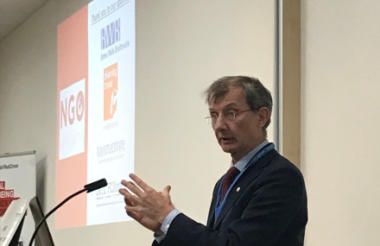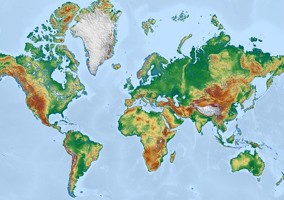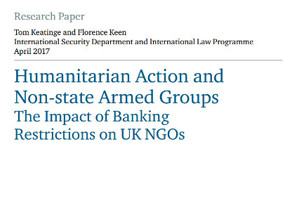Kevin Watkins, chief executive of Save the Children, said that to reclaim their relationships with the public international development charities must engage with them on more honest terms and not be defensive when attacked.
He said that some of the claims made by international aid charities in its heyday, such as during the Jubilee 2000, an international coalition movement in over 40 countries that called for cancellation of third world debt by the year 2000, were “ill-judged and frankly dishonest”. Adding, “I’m not pointing any fingers here, I was part of that whole thing.”
Watkins was speaking at Civil Society Media’s NGO Insight conference where he was delivering the opening plenary on ‘The role of UK civil society and the challenges of our era’.
He said: “Whoever came up with the slogan ‘double aid to halve poverty’ is telling the public porkies. You could multiply aid by 50 and you wouldn’t halve poverty. And most of the poverty that is being reduced, contrary to the claims that are being made by our sector, are not in countries that have been receiving aid, they are in countries that haven’t – in particular China, and great success stories in East Asia.”
He said that international development charities need to “reengage with the public in more honest terms and we need to be confident in the intellectual case for aid”. And we need to “be prepared to have debates about areas that are uncomfortable”.
He said: “Social justice organisations have to be willing to engage in debates about executive pay, to give you one example, and boards of charities have to recommend that these issues are going to come up and you can’t do it just by ducking it and hoping it will go away.”
But Watkins said whatever case we make for aid, “if we can’t reconnect with the British public we will lose the political argument, and we will lose the debate in the media”.
He said: “We have to think long and hard about how we can reconnect with the public in this country in terms that have a resonance and a relevance for them.”
Aid paradox
Watkins told delegates that we are living in an era of a paradox, where “we have never had it so good on aid” with strong commitment to the 0.7 per cent of gross national income going to aid spending, yet there has “never been such sustained attacks on aid as there is today”.
Watkins also said that aid charities need to get better at countering criticism of aid.
He said: “When the big guns in international development and people who think seriously about international development challenge aid, the proper response isn’t to stay silent or be defensive, it is to do your homework and make the counter-case. And the counter-case on aid is actually very clear, but we have been singularly ineffective at countering them.”
But he also warned charities against being too defensive in the face of media criticism. He said: “I think the worst thing you can do in response to a lot of these media attacks is be defensive. I think probably as institutions we have grown too defensive, there are some debates that you will never win because the people on the other side of the debate aren’t there to debate – they are using these opportunities to make statements about their deeper beliefs.”
Development charities ‘obsessed with our brand’
Watkins also outlined the need for collaboration and said there is “too much competition in agencies in the sector”.
He said: “We are all obsessed with our brand and this sort of stuff. So basically we need to cut a lot of this out. When your faced with crises of the magnitude we are facing now, if you just think what’s on the immediate radar – South Sudan, the Rohingya crises, Syria crises, Somalia, I could go on – these are way bigger than our whole sector can respond to so I think finding better ways of collaborating is absolutely critical.”
Watkins also reminded delegates that aid is “not what lifts people out of poverty”, and that aid “is not even the biggest gun in the arsenal that this country can deploy on behalf of the world’s poor”.
He said: “We need to think of aid a one part of the toolkit that includes trade, includes our diplomatic capabilities, and includes our abilities to direct resources towards climate change interventions.”
Related articles











